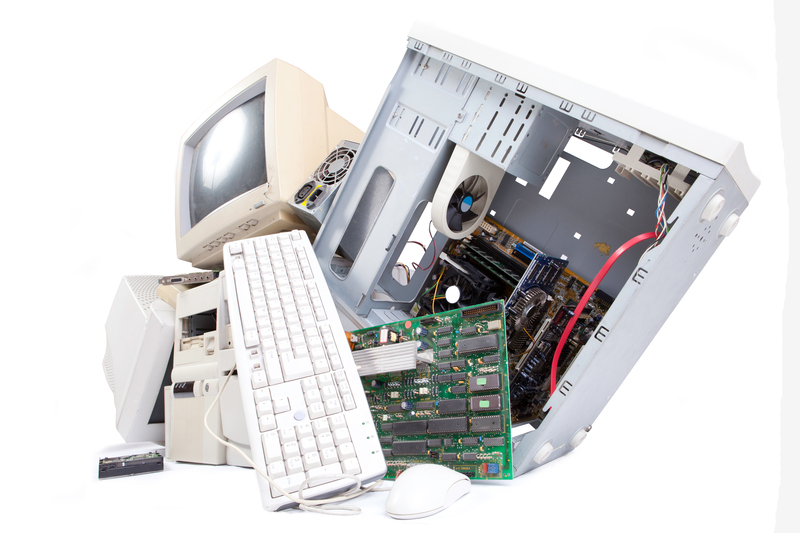Maximize Recycling Efforts at Home
Posted on 17/01/2025
Recycling is an essential practice that helps reduce waste, conserve natural resources, and minimize environmental pollution. While many of us are familiar with the basics of recycling, there are numerous ways to maximize our efforts at home. This article will explore effective strategies, tips, and benefits of improving your household recycling habits.
Understand What Can Be Recycled
The first step in maximizing recycling efforts is understanding what materials can and cannot be recycled. Commonly recyclable items include:
- Paper and Cardboard: Newspapers, magazines, cardboard boxes, and office paper.
- Glass: Bottles and jars (clean and free of food residue).
- Plastics: Most plastic bottles and containers labeled with recycling symbols #1 and #2.
- Metals: Aluminum cans, tins, and food containers.
Items that generally cannot be recycled include plastic bags, Styrofoam, and certain types of contaminated paper products.

Set Up a Recycling Station
Creating a designated recycling station in your home can make it easier to separate and store recyclable materials. Here's how to do it:
- Use clearly labeled bins for different types of recyclables (e.g., glass, paper, plastics).
- Place the recycling station in a convenient location, such as the kitchen or garage.
- Ensure the bins are easily accessible to all household members, including children.
Educate Your Household
Encouraging every member of your household to participate in recycling is key to maximizing efforts. Here are some tips:
- Teach children about the importance of recycling and how to properly sort materials.
- Provide information on local recycling guidelines and collection schedules.
- Lead by example and consistently practice good recycling habits.
Reduce and Reuse
Recycling is just one part of waste management. Reducing and reusing materials can greatly complement your recycling efforts:
- Purchase products with minimal or recyclable packaging.
- Use reusable bags, containers, and water bottles.
- Repurpose items where possible, such as using jars for storage or old clothes for cleaning rags.
Compost Organic Waste
Composting is an excellent way to recycle organic waste and enrich your garden soil:
- Set up a compost bin in your backyard or use a kitchen compost pail.
- Add food scraps, yard waste, and paper products to your compost.
- Avoid composting meat, dairy, and oils, as these can attract pests.
Monitor and Optimize
Continually monitoring your recycling efforts can help you identify areas for improvement:
- Track your recycling habits and set goals to increase your recycling rate.
- Stay informed about new recycling programs and initiatives in your community.
- Regularly audit your waste to ensure you are maximizing recycling opportunities.
Pros and Cons of Recycling at Home
Recycling has numerous advantages, but it's essential to consider both the pros and cons:
Pros
- Reduces landfill waste and environmental pollution.
- Conserves natural resources like timber, water, and minerals.
- Decreases greenhouse gas emissions by lowering production needs.
- Promotes environmental awareness and sustainability in the household.
Cons
- Recycling processes can be costly and energy-intensive.
- Improper sorting can contaminate recycling streams, rendering materials unrecyclable.
- Not all materials are accepted in curbside recycling programs.
- Requires time and effort to properly sort and clean recyclables.
Tips for Successful Recycling
- Clean and dry all recyclable materials before placing them in the bin.
- Break down cardboard boxes to save space in your recycling bin.
- Keep plastic caps on bottles to ensure they are processed correctly.
- Be mindful of local recycling guidelines and follow them rigorously.

Key Takeaways
- Know what materials are recyclable and educate your household about proper recycling practices.
- Set up a convenient recycling station and consistently monitor your efforts.
- Complement recycling with efforts to reduce and reuse materials.
- Consider composting organic waste to reduce landfill contributions.
Conclusion
Maximizing recycling efforts at home requires commitment, knowledge, and a willingness to adapt. By understanding what can be recycled, setting up an efficient system, and educating your household, you can significantly reduce your environmental footprint. Remember, recycling is just one part of the solution - reducing and reusing materials are equally important for creating a sustainable future.
Latest Posts
Enhance Business Efficiency with Waste Collection

